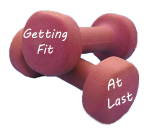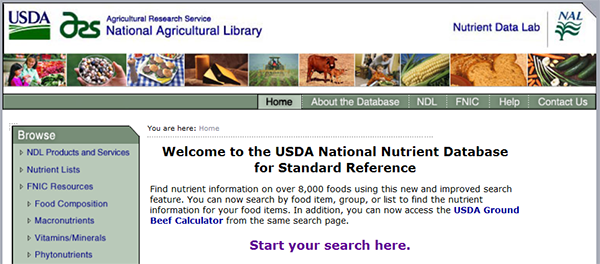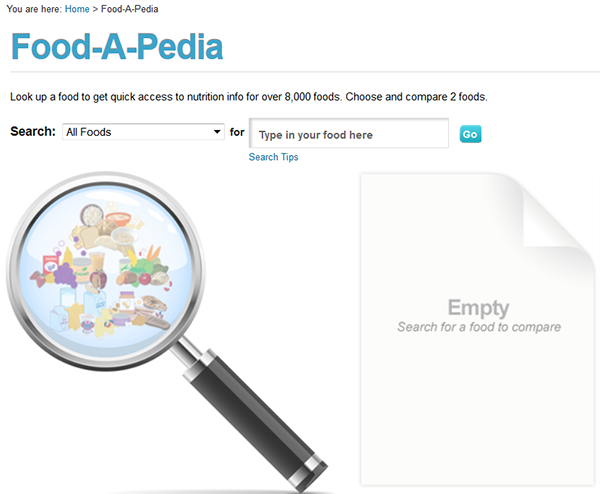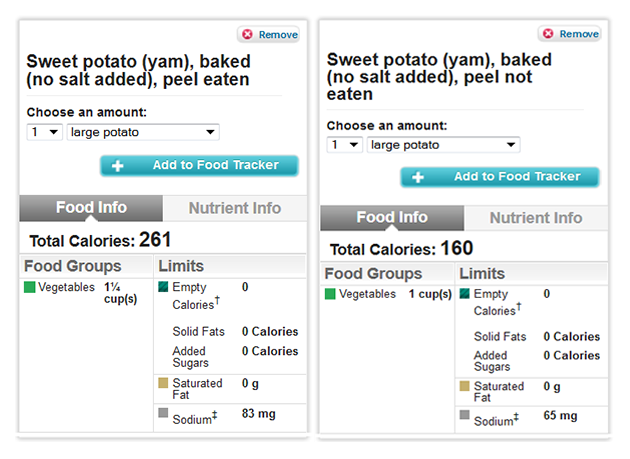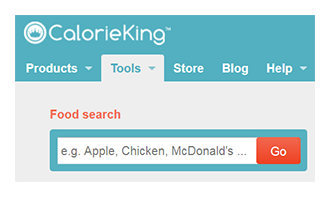Where do you go for information? No matter what the subject is, one of the most important aspects of our research involves finding the right resources. Some are reliable some are not.
Nowhere is this more important than when we are looking for the information we need to make the right choices regarding our food.
Number One Nutritional Data Resource
Even in regard to our health needs I do not trust completely everything the government puts out. Now don’t get me wrong, I am not into conspiracies even if I do come from the land of 10,000 lakes and the home of Jesse Ventura (host of Conspiracy Theory with Jesse Ventura). But I have seen instances where our federal government’s food recommendations were not reliable.
However, in many areas official government sites are clearly the most dependable source for information. This is particularly so in the case of nutritional information where the collection of scientific data is key.
In this case, the USDA (United States Department of Agriculture) has not only collected a vast database of nutritional information, they have made it readily available for us to access. You will want to bookmark the USDA National Nutrient Database and keep it in mind when you want detailed nutritional information about any food item.
If you want a complete source of nutritional information about any food you can get it here: fats, protein, carbs, vitamins, minerals, etc. There is no doubt that this is a primary resource for reliable nutritional data.
Access Basic Nutritional Data
Unfortunately, using the USDA database is not as efficient as we might like for some basic uses. In particular, if you were to look up butter you would find the grams of fat, protein and carbohydrates. However if you want the total calories in a given amount of butter you need to know that fat has 9 calories per gram and that protein and carbs have 4, then do the math! Not too practical for quick use.
However, the USDA also has the Food-A-Pedia. This great little tool provides us just what we need for quick access to the vital information we want and need.
Simply enter the name of the food you are interested in. To demonstrate the results I entered sweet potato and received several options including eating or not eating the peel and the size of potato. I entered one and then added the other to show the two, side beside.
If you want, you can then click on the tab you see above for nutrient information in which you will get all the details found in the database—this information is quite detailed (and long) in each case so I will not show a sample result here. The Food-A-Pedia is so valuable you may want to bookmark it and put an icon/link for it on your taskbar!
Other Sources for Nutritional Information
Of course there are scores of additional sources for information about all health issues and about nutrition in particular. Many of these, but not all, are helpful. A few have features that make them especially practical and worth knowing about.
A very popular website that offers exceptional help for anyone looking to get in control of their calorie intake is CalorieKing. This site offers a number of paid programs, but you can access their tools for free. Go to the CalorieKing Food Search Tool to search for well known fast food and other restaurant menu items. This is a well designed, user friendly, helpful resource.
Another helpful tool is About’s Calorie Count Food Browser. This resource allows you to search by commercial food products such as individual varieties of Cheerios. It also includes store brand products. It is particularly useful for menu planning with calorie and nutritional goals in mind.
Unfortunately, a large number of individuals and organizations have agendas, either for profit or based on unscientific theories, that are of questionable value. Some of these may be offering valid information. Many do not. I cannot deal adequately with the problem here, but it is enough for now to simply recommend caution.
Conclusion
Clearly people have strong views about food and nutritional values. We can all agree, however, that no matter how we look at most of our differences the key facts are held in common. The total amount of calories we consume is determinative of our weight, and eating a wide variety of foods will contribute to our good health. The tools presented here can help provide the information we need to make good choices.
